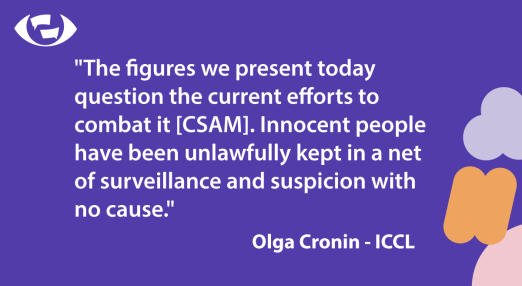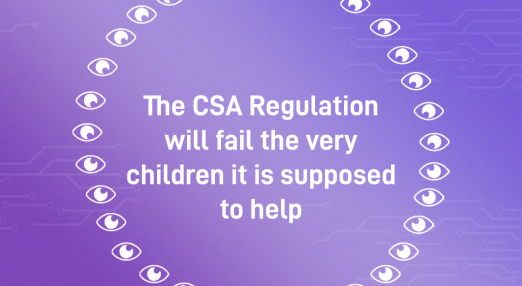New Europol rules massively expand police powers and reduce rights protections
The new rules governing Europol, which came into force at the end of June, massively expand the tasks and powers of the EU’s policing agency whilst reducing external scrutiny of its data processing operations and rights protections for individuals.
Filter resources
-

New Europol rules massively expand police powers and reduce rights protections
The new rules governing Europol, which came into force at the end of June, massively expand the tasks and powers of the EU’s policing agency whilst reducing external scrutiny of its data processing operations and rights protections for individuals.
Read more
-

Activists v. Poland. European Court of Human Rights hearing on uncontrolled surveillance
On 27 September, the hearing was held at the European Court of Human Rights, following the application against Poland lodged by activists from Poland’s Panoptykon Foundation and Helsinki Foundation for Human Rights, joined by a human rights attorney.
Read more
-

Europol is going to collect a massive collection of intimate conversations from European youngsters
This story begins with the creation of a new European agency, but ends with one of the world's largest databases of private chats and images shared by European youngsters—built by the police.
Read more
-

The DSA fails to reign in the most harmful digital platform businesses – but it is still useful
The Digital Services Act (DSA) adopted by the European Parliament on 5 July 2022 was lauded by some as creating a “constitution for the internet” and a European response to the “digital wild west” created by Silicon Valley. But the DSA is far from perfect and much will depend on how well the new regulation is going to be implemented and enforced.
Read more
-

PEGA hearing about spyware and ePrivacy
Following the public revelations of the widespread use of Pegasus and other spyware, the European Parliament formed the Committee of Inquiry to investigate the use of Pegasus and equivalent surveillance spyware (PEGA) in March 2022.
Read more
-

Chat Control – A good day for privacy
The Austrian parliament voted in its EU committee to adopt a resolution that has a binding effect on the position of the Austrian government not to agree to the proposal for the controversial child sexual abuse regulation, if it is not brought in line with fundamental rights.
Read more
-

Position paper: A safe internet for all – Upholding private and secure communications
Despite the importance of its goals, the European Union’s proposed Child Sexual Abuse Regulation (CSAR) will not only fail in its aims to protect young people, but it will also even harm those it wants to protect.
Read more
-

News from Ireland question effectiveness and lawfulness of online scanning for tackling child sexual abuse: Lessons for the EU
An investigation in Ireland published today shows that tools for scanning private communications to detect child sexual abuse material (CSAM) online suffer not only from low accuracy and high rates of false alarms but have led to people’s data and privacy being put in danger without reasonable suspicion.
Read more
-

Johansson’s address to MEPs shows why the CSA law will fail the children meant to benefit from it
On 10 October 2022, EU Commissioner for Home Affairs, Ylva Johansson, addresses the European Parliament’s Civil Liberties (LIBE) Committee about the proposed EU Child Sexual Abuse Regulation (2022/0155). The address follows months of criticism from civil liberties groups, data protection authorities and even governments due to the risks it poses to everyone’s privacy, security and free expression online.
Read more
-

EDRi-gram, 28 September 2022
We celebrate the ruling of the Court of Justice of the European Union that the general storage of data undermines people's right to privacy and data protection. We're also exploring how a community-focused project enables young people to defend their online privacy.
Read more
-

United Nations report voices digital rights groups’ concerns over encryption in EU’s new rules
On 16 November 2022, the United Nations Human Rights Office published a report on the right to privacy in the digital age warning against the European Union’s plans to undermine encryption and the threat of mass surveillance in the proposed chat control legislation.
Read more
-

Foreign authorities are banning Google and Microsoft services from schools, the Czech Republic is floundering
Jan Cibulka, a journalist for iROZHLAS and member of the Big Brother Awards CZ Jury, organised by EDRi member Iuridicum Remedium, has investigated how Czech authorities and schools are approaching the protection of privacy when using distance learning tools. Such tools send sensitive information overseas, where US law gives intelligence agencies access to it. The tools do not guarantee that children's private chats will not be accessed by, for example, teachers. While the first regional governments in Europe are developing safer alternatives, in the Czech Republic the risk assessment remains up to individual schools. In practice, they have little choice.
Read more
